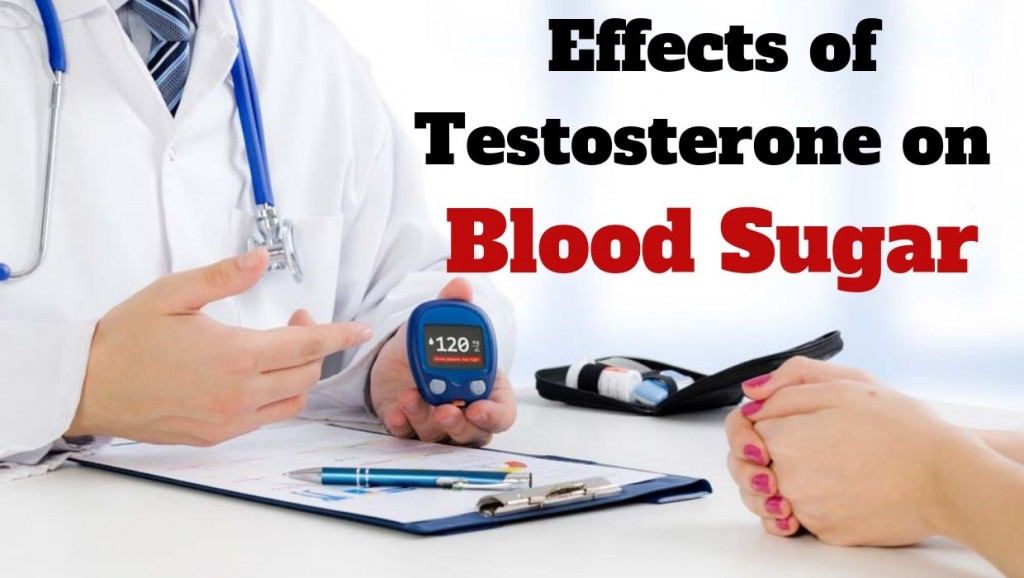In this article
Although many do not consider diabetes to be a significant disease like heart disease or cancer. But it is still a deadly condition for numerous Americans.
In fact, it is ranked as the seventh leading cause of death in the United States, and nearly 10 percent of Americans are currently dealing with diabetes.
Diabetes is grouped into two main categories, known as type 1 and type 2. Type 1 is insulin-dependent diabetes and is an autoimmune disease in which the body attacks the pancreatic cells that create insulin.
On the other hand, diabetes type 2 is known as adult-onset diabetes and is far more commonly seen. Although a cure has not yet been found for either type of diabetes, some medications and therapies have been studied over the years and have been found to be quite effective at limiting the symptoms and the side effects of the disease.
For example, testosterone injections and diabetes have been studied in recent years to see how levels of this hormone may affect those diagnosed with this disease.
Diabetes and Testosterone Therapy
Testosterone is usually considered to be a predominantly male hormone primarily affecting sexual health and reproduction.
However, upon closer examination, this unique chemical messenger does much more than that. While it is found in higher levels in men than it is in women. Woman’s ovaries actually do make a small quantity of testosterone, and women need high enough levels of this chemical to stay healthy and feel well.
Low testosterone levels most frequently cause such symptoms as the following:
- Poor sex drive
- Fatigue
- Weight gain
- Depression
- Poor self-esteem
- Decreased bone strength
When researchers dig below the surface, they discover that testosterone is actually highly involved in many other areas of bodily health. In particular, researchers note that low T levels are frequently seen among men who have diabetes type 2.
One study notes that low testosterone levels are often directly related to insulin resistance in which the body’s cells do not respond adequately to insulin telling them to store glucose.
Therefore, in some cases, low testosterone and diabetes may be directly linked. This study specifically showed that while 43 percent of type 2 diabetics had low total testosterone levels, only 7 percent of those with type 1 diabetes had low T.
How Does Testosterone Affect Blood Sugar?
Low T levels have long been tied to a variety of factors that have a direct link to your overall wellness. For example, decreased testosterone in the bloodstream has been linked to obesity and to high blood pressure.
However, the question for many has been, whether low T cause such conditions as diabetes or whether the health conditions cause low testosterone levels?
The general consensus among many experts is that low testosterone levels most likely result from poor overall health although some conflicting studies have hinted at the opposite.
Testosterone is known to improve your body’s reaction to insulin, helping your body reduce blood sugar levels by storing increased levels of glucose in the cells.
When T levels get too low, your body responds by storing excess energy in the form of glucose in visceral fat cells rather than in subcutaneous fat cells, increasing the amount of the most dangerous type of fat that is located between your organs.
Conversely, testosterone injections have been proven to decrease visceral fat.
Is TRT Safe for Diabetics?
While it is not yet known exactly how low testosterone and diabetes are linked, you may wonder whether testosterone therapy could form part of a well-rounded treatment for diabetes type 1 or type 2.
Although there is no conclusive evidence from recent studies showing that diabetes and testosterone therapy are perfect fits or that this therapy should always be used. You may be able to see an improvement in other symptoms of low testosterone while receiving therapy.
For example, if you have experienced a poor sex drive, daily fatigue, or hair loss since you have been diagnosed with diabetes, you may be able to benefit greatly from testosterone injections under the care of your medical practitioner.
Even if you have already been diagnosed with low T but do not have diabetes, you may want to ask your health care provider about testosterone and diabetes type 2. Research from 2018 shows that raising testosterone levels may be able to decrease the risk of developing type 2 diabetes.
Can Type 1 Diabetics Take Testosterone?
While most of the research has been performed on adults with diabetes type 2, there may still be a link between testosterone and diabetes type 1.
One study showed that 9.5 percent of the individuals with diabetes type 1 who were studied had testosterone levels less than 300 mg/dL and that this low number was also linked to obesity.
Despite these numbers, researchers concluded that individuals with low T and diabetes type 1 have no more risk factors from these low levels than the general population does.
Therefore, if you suffer from low testosterone along with diabetes type 1, you can use TRT for overall wellness, but you may not notice any difference in your blood glucose levels or in your daily insulin injection amounts.
You need to undergo testing to determine whether your testosterone levels are truly low, and you will then need to be approved by your medical practitioner for testosterone treatments
Can Type 2 Diabetics Take Testosterone?
It is highly documented that TRT and diabetes type 2 are closely and positively related. Testosterone injections and diabetes type 2 have a direct relationship with each other. TRT may be able to decrease the side effects of this disease and may be able to decrease the number of other treatments that you must use.
Of course, you would first need to undergo testing to determine whether your testosterone levels are truly low, and you will then need to be approved by your medical practitioner for testosterone treatments.
If you have diabetes type 2, testosterone therapy may be able to reduce your levels of dangerous body fat and increase your lean muscle mass.
The correlation between low testosterone and diabetes type 2 and type 1 will surely continue to be studied over the next few decades. Until that time, you should chat with your practitioner about your T levels especially if you have either type of diabetes.
You should ask whether testosterone therapy could benefit you. Working with a trusted physician will ensure that you combine therapy with other helpful treatments to reduce your overall risks and complications from either type of diabetes.





